Culture and history info
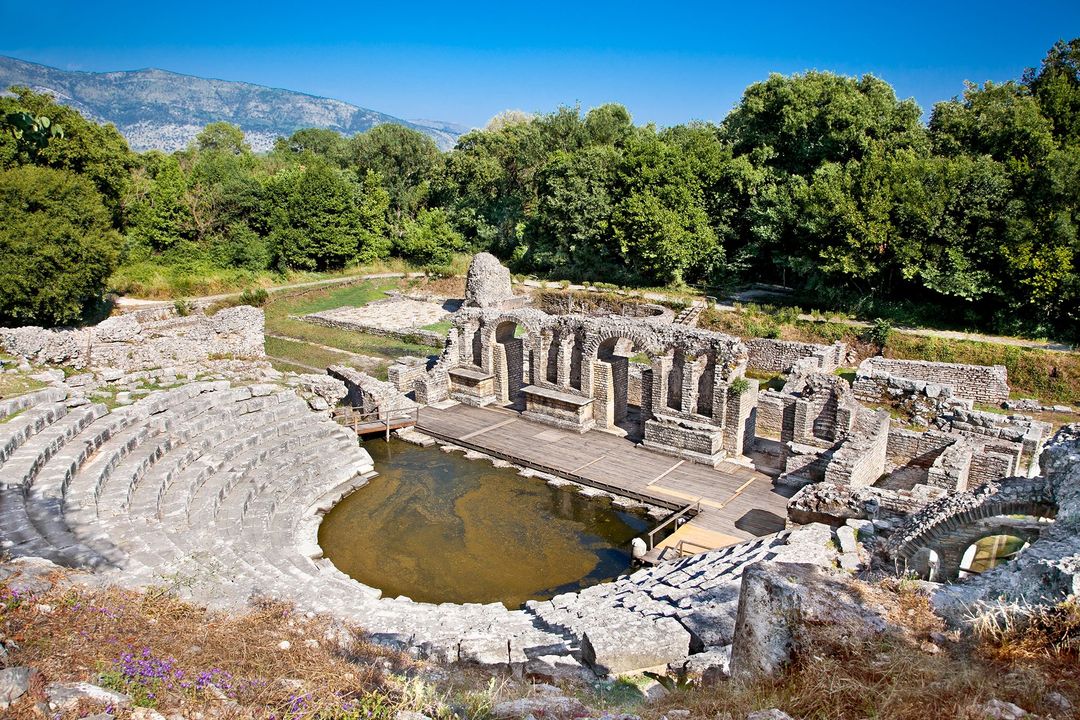
In antiquity the city was known by the ancient Greek name of Onchesmos or Anchiasmos and was inhabited by the Greek tribe of the Chaonians. Onchesmos flourished as the port of the Chaonian capital Phoenice(modern-day Finiq).
The city was probably raided by the Ostrogoths in 551 AD, while during this period it became also the target of piratic raids by Gothic ships. In a medieval chronicle of 1191 the settlement appears to be abandoned, while its former medieval name (Anchiasmos) isn't mentioned any more. From that year, the toponym borrows the name of the nearby Orthodox basilica church of Agioi Saranta, erected in the 6th century, ca. 1 km (0.6 mi) southeast of the modern town.
In 1878, a Greek rebellion broke out, with revolutionaries taking control of Sarandë and Delvinë. This was suppressed by Ottoman troops, who burned twenty villages in the region.
The town was included in the newly formed Albanian state in 1913 under the terms of the Protocol of Florence. It was occupied twice by Greece in 1913 and from 1914 to 1916, the second time by Greek insurgents from the Autonomous Republic of Northern Epirus. In May 1914, negotiations were started in Sarandë between representative of the provisional government of Northern Epirus and that of Albania which continued in nearby Corfu and ended up with the recognition of the Northern Epirote autonomy inside the newly established Albanian state.
It was then occupied by Italy between 1916 and 1920 as part of the Italian Protectorate on southern Albania. Sarandë was again occupied by Italian forces in 1939 and was a strategic port during the Italian invasion of Greece. During this occupation, it was called "Porto Edda" in honor of the eldest daughter of Benito Mussolini.
During the Greco-Italian War, the city came under the control of the advancing Greek forces, on 6 December 1940. The capture of this strategic port further accelerated the Greek penetration to the north. As a result of the German invasion in Greece in April 1941, the town returned to Italian control. On 9 October 1944 the town was captured by a group of British commandos under Brigadier Tom Churchill and local partisans of LANÇ under Islam Radovicka. The involvement of the British troops was considered problematic by LANÇ as they considered that they would use the town as their base and install allies of the Greek resistance in the area as British documents indicate that EDES forces also joined the operation. However, the British troops soon withdrew from the region, leaving the region to the Albanian communist forces.
Tourism is the main driver of the economy of Sarandë. It is a significant tourist destination on the Ionian Sea, and by far one of the most popular destination in Albania.
It's a prosperous region with varied attractions, plants and mountains, rivers and lakes, springs and virgin beaches, citrus plantations, olive groves and vineyards, pastures and woods, fish and shellfish farming, desirable hunting places. In short, the right place for the development of tourism. Saranda's stony beaches are quite decent and there are plenty of sights in and around town, including the mesmerising ancient archaeological site of Butrint and the hypnotic Blue Eye Spring. Between Saranda and Butrint, the lovely beaches and islands of Ksamil are perfect for a dip after a day of exploring.




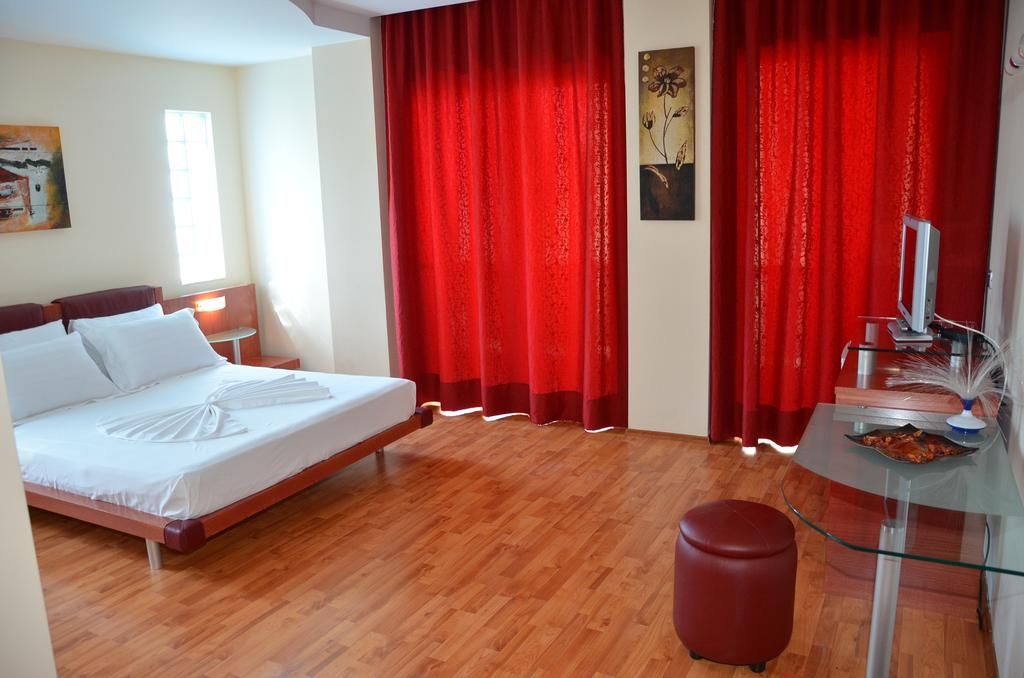
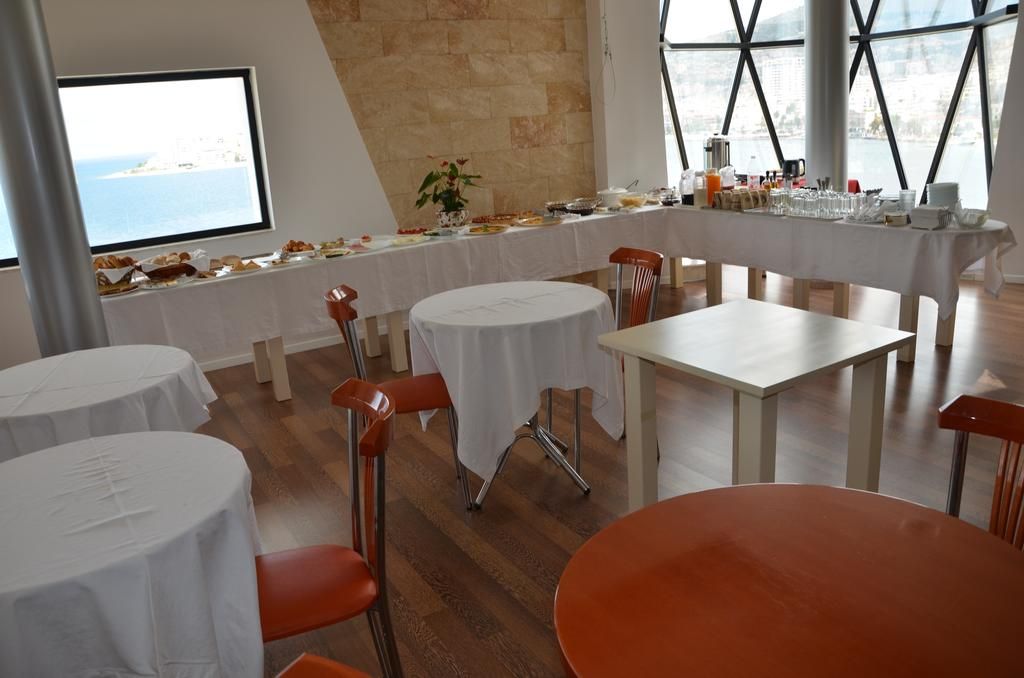
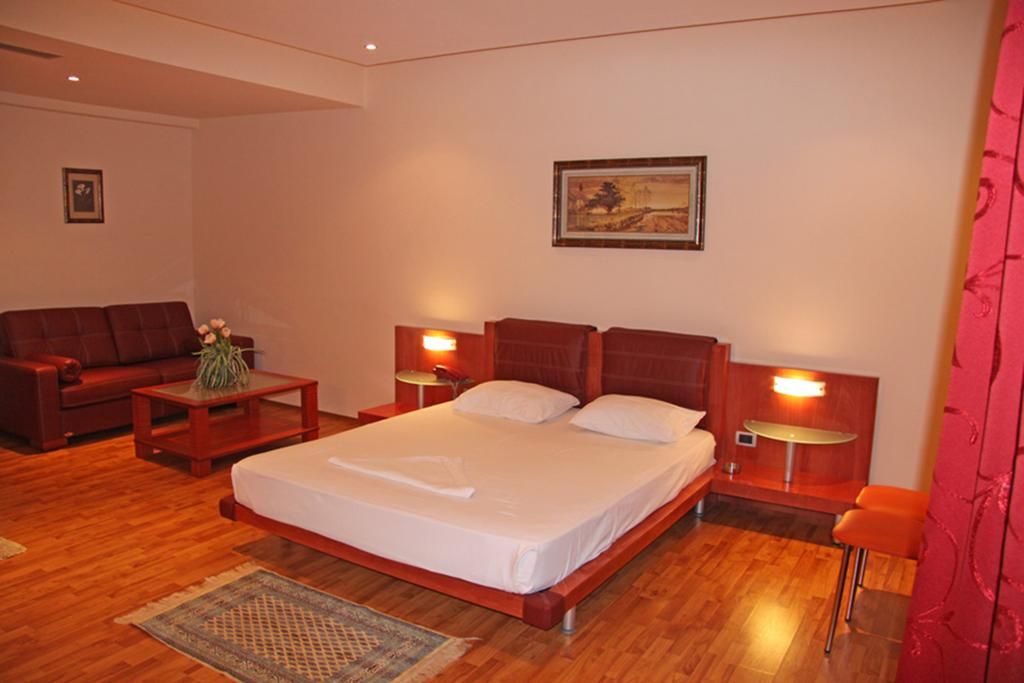
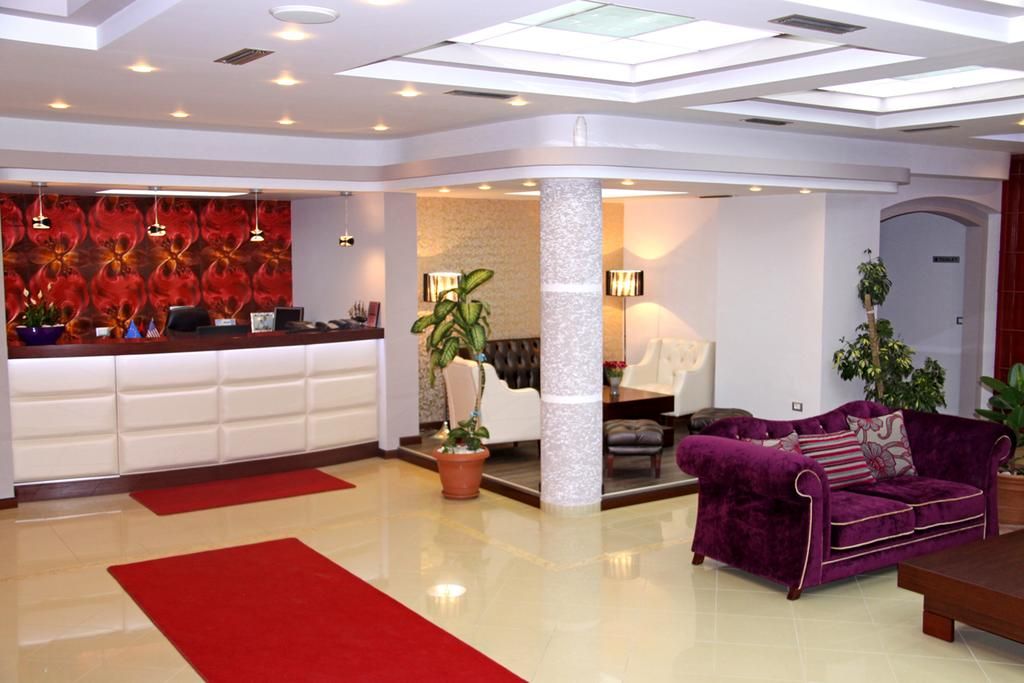
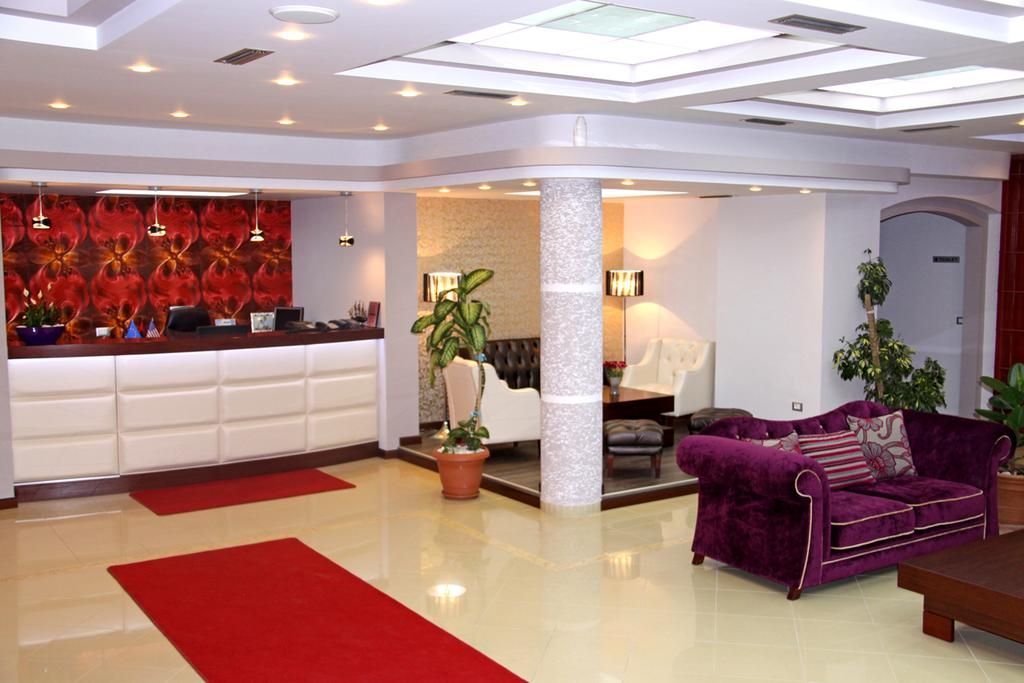
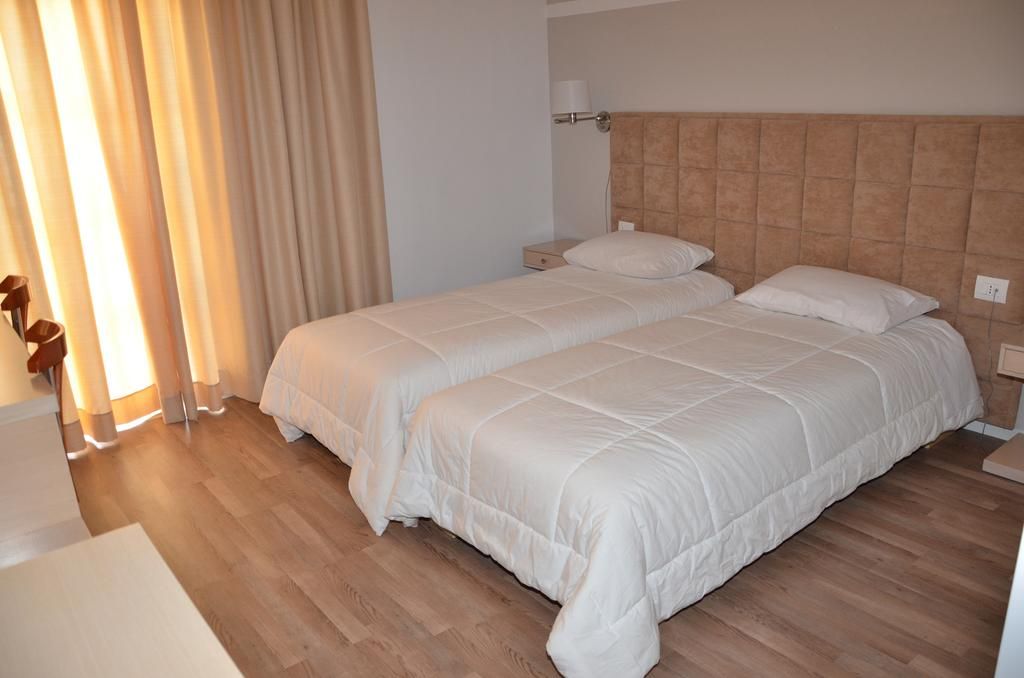
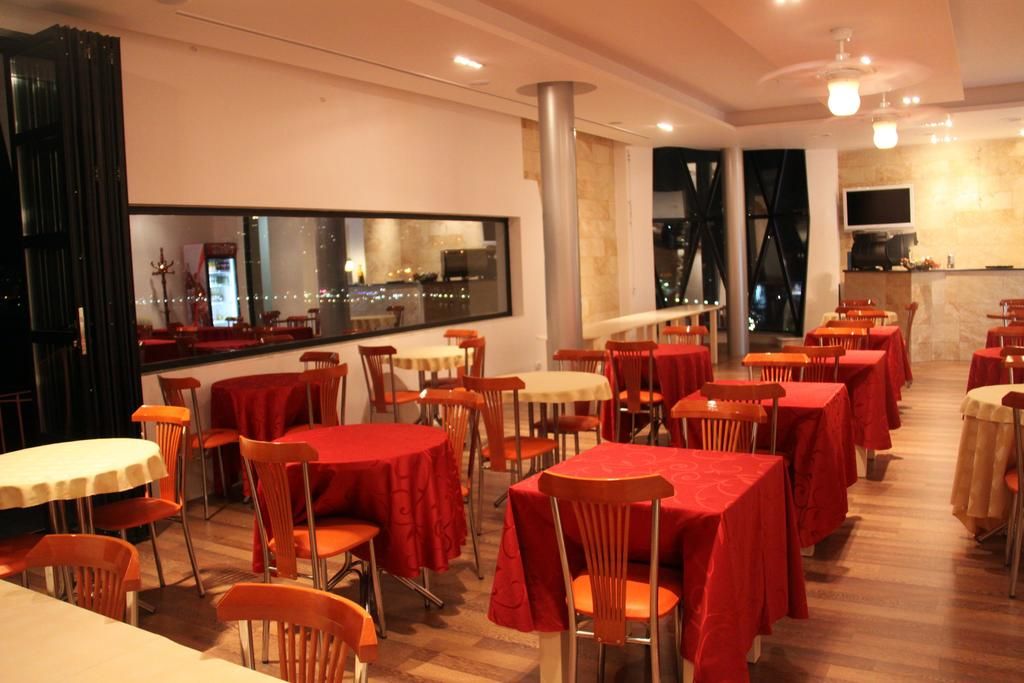
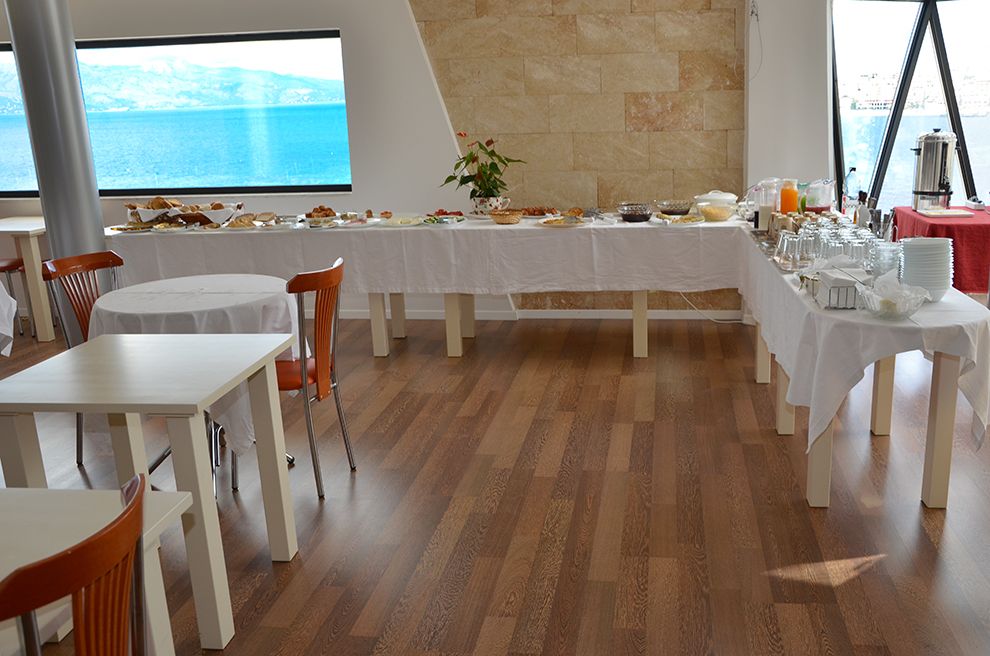
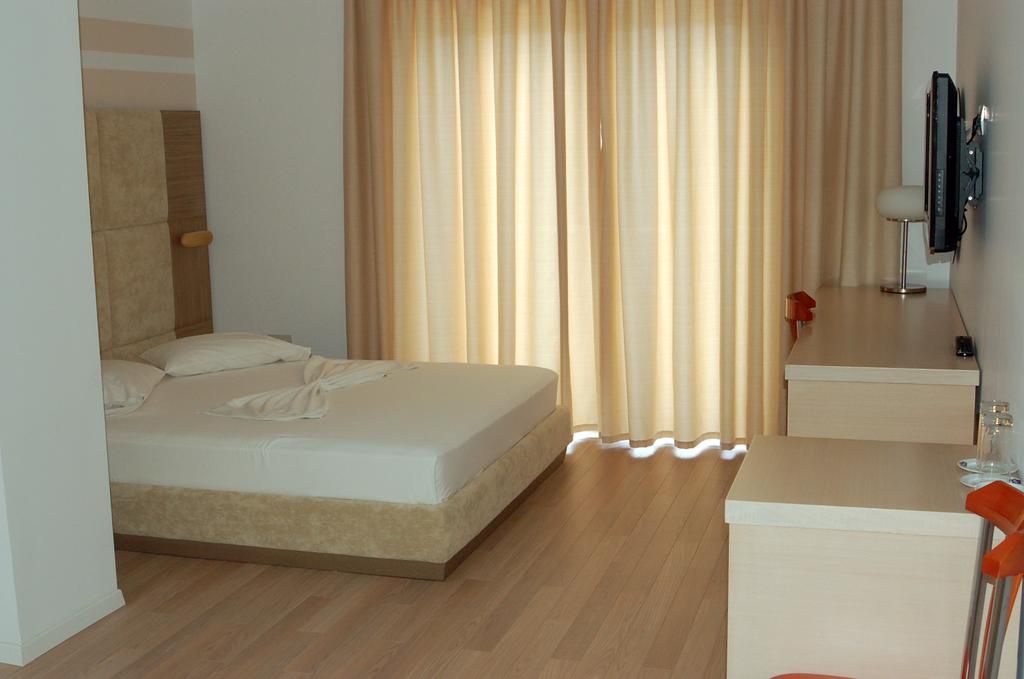

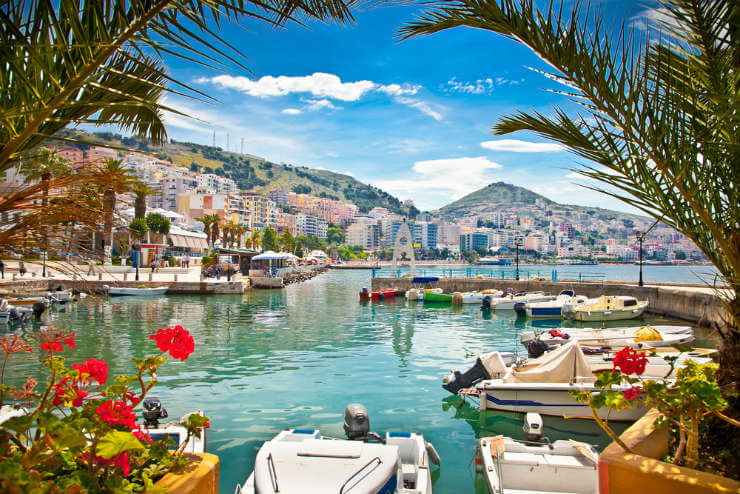 Sarandë or Saranda is a coastal town in Vlorë County, southern of Albania. Geographically, it is situated on an open sea gulf of the Ionian Sea in the central Mediterranean, about 14 km (8.7 mi) east of the north end of the Greek island of Corfu. Saranda typically has over 300 sunny days a year.
Sarandë or Saranda is a coastal town in Vlorë County, southern of Albania. Geographically, it is situated on an open sea gulf of the Ionian Sea in the central Mediterranean, about 14 km (8.7 mi) east of the north end of the Greek island of Corfu. Saranda typically has over 300 sunny days a year.  In antiquity the city was known by the ancient Greek name of Onchesmos or Anchiasmos and was inhabited by the Greek tribe of the Chaonians. Onchesmos flourished as the port of the Chaonian capital Phoenice(modern-day Finiq).
The city was probably raided by the Ostrogoths in 551 AD, while during this period it became also the target of piratic raids by Gothic ships. In a medieval chronicle of 1191 the settlement appears to be abandoned, while its former medieval name (Anchiasmos) isn't mentioned any more. From that year, the toponym borrows the name of the nearby Orthodox basilica church of Agioi Saranta, erected in the 6th century, ca. 1 km (0.6 mi) southeast of the modern town.
In 1878, a Greek rebellion broke out, with revolutionaries taking control of Sarandë and Delvinë. This was suppressed by Ottoman troops, who burned twenty villages in the region.
The town was included in the newly formed Albanian state in 1913 under the terms of the Protocol of Florence. It was occupied twice by Greece in 1913 and from 1914 to 1916, the second time by Greek insurgents from the Autonomous Republic of Northern Epirus. In May 1914, negotiations were started in Sarandë between representative of the provisional government of Northern Epirus and that of Albania which continued in nearby Corfu and ended up with the recognition of the Northern Epirote autonomy inside the newly established Albanian state.
It was then occupied by Italy between 1916 and 1920 as part of the Italian Protectorate on southern Albania. Sarandë was again occupied by Italian forces in 1939 and was a strategic port during the Italian invasion of Greece. During this occupation, it was called "Porto Edda" in honor of the eldest daughter of Benito Mussolini.
During the Greco-Italian War, the city came under the control of the advancing Greek forces, on 6 December 1940. The capture of this strategic port further accelerated the Greek penetration to the north. As a result of the German invasion in Greece in April 1941, the town returned to Italian control. On 9 October 1944 the town was captured by a group of British commandos under Brigadier Tom Churchill and local partisans of LANÇ under Islam Radovicka. The involvement of the British troops was considered problematic by LANÇ as they considered that they would use the town as their base and install allies of the Greek resistance in the area as British documents indicate that EDES forces also joined the operation. However, the British troops soon withdrew from the region, leaving the region to the Albanian communist forces.
In antiquity the city was known by the ancient Greek name of Onchesmos or Anchiasmos and was inhabited by the Greek tribe of the Chaonians. Onchesmos flourished as the port of the Chaonian capital Phoenice(modern-day Finiq).
The city was probably raided by the Ostrogoths in 551 AD, while during this period it became also the target of piratic raids by Gothic ships. In a medieval chronicle of 1191 the settlement appears to be abandoned, while its former medieval name (Anchiasmos) isn't mentioned any more. From that year, the toponym borrows the name of the nearby Orthodox basilica church of Agioi Saranta, erected in the 6th century, ca. 1 km (0.6 mi) southeast of the modern town.
In 1878, a Greek rebellion broke out, with revolutionaries taking control of Sarandë and Delvinë. This was suppressed by Ottoman troops, who burned twenty villages in the region.
The town was included in the newly formed Albanian state in 1913 under the terms of the Protocol of Florence. It was occupied twice by Greece in 1913 and from 1914 to 1916, the second time by Greek insurgents from the Autonomous Republic of Northern Epirus. In May 1914, negotiations were started in Sarandë between representative of the provisional government of Northern Epirus and that of Albania which continued in nearby Corfu and ended up with the recognition of the Northern Epirote autonomy inside the newly established Albanian state.
It was then occupied by Italy between 1916 and 1920 as part of the Italian Protectorate on southern Albania. Sarandë was again occupied by Italian forces in 1939 and was a strategic port during the Italian invasion of Greece. During this occupation, it was called "Porto Edda" in honor of the eldest daughter of Benito Mussolini.
During the Greco-Italian War, the city came under the control of the advancing Greek forces, on 6 December 1940. The capture of this strategic port further accelerated the Greek penetration to the north. As a result of the German invasion in Greece in April 1941, the town returned to Italian control. On 9 October 1944 the town was captured by a group of British commandos under Brigadier Tom Churchill and local partisans of LANÇ under Islam Radovicka. The involvement of the British troops was considered problematic by LANÇ as they considered that they would use the town as their base and install allies of the Greek resistance in the area as British documents indicate that EDES forces also joined the operation. However, the British troops soon withdrew from the region, leaving the region to the Albanian communist forces.